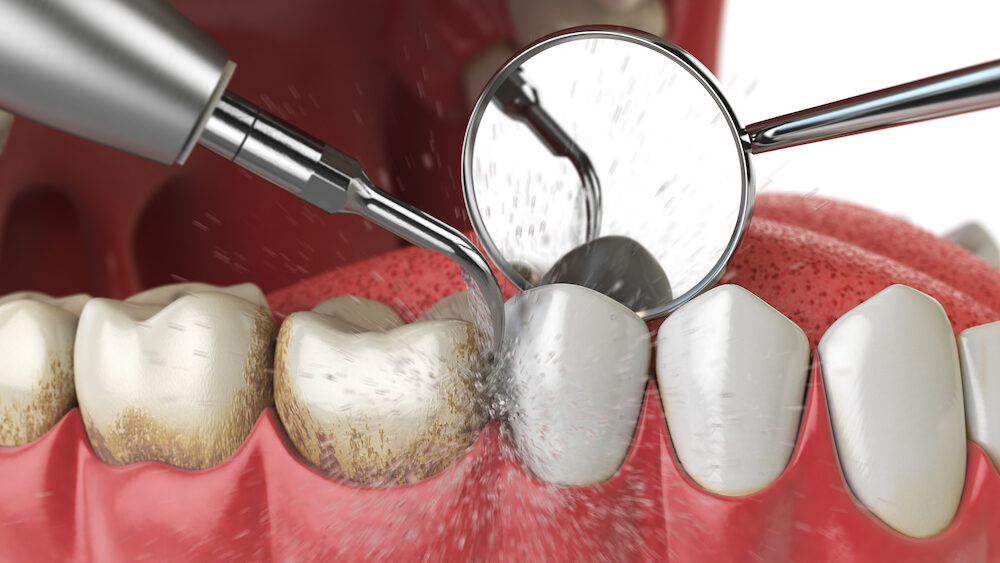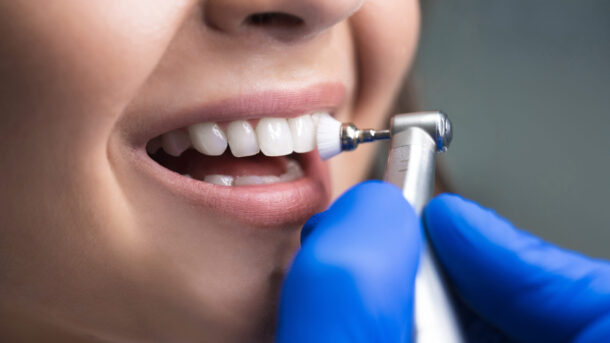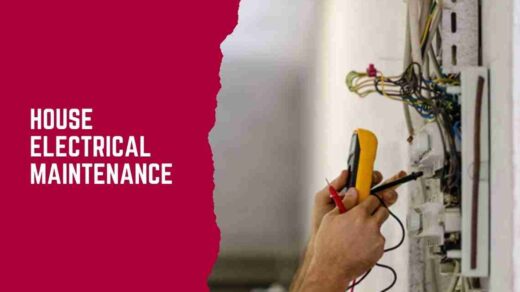Did you know that even the most diligent brushers miss up to 40% of their tooth surfaces? Plaque and tartar silently accumulate, threatening your gum health and overall well-being. Professional teeth cleaning isn’t just a “spa day” for your mouth—it’s essential preventive healthcare.

Why Teeth Cleaning Matters More Than You Think
Plaque (a sticky bacterial film) hardens into tartar within days. Unlike plaque, tartar can’t be removed by brushing—it requires professional tools. If left alone, it can lead to:
- Gum inflammation and bleeding (gingivitis)
- Bone loss and loose teeth (periodontitis)
- Persistent bad breath from bacterial buildup
Regular teeth cleaning prevents these issues by eliminating tartar and surface stains, giving you fresher breath and a brighter smile.
What Happens During a Professional Teeth Cleaning?
- Ultrasonic Scaling: High-frequency vibrations gently break up tartar above and below the gumline—painlessly.
- Deep Polishing (PMTC): Using fine paste and tools, your hygienist smooths tooth surfaces. This critical step slows down plaque reattachment, keeping your teeth cleaner longer.
- Personalized Coaching: Learn brushing/flossing techniques tailored to your mouth—like holding your brush at a 45-degree angle to gums for optimal plaque removal.
Beyond the Clinic: Daily Habits That Protect Your Smile
- Brush Smarter: Skip wetting your toothbrush! A dry brush + pea-sized fluoride toothpaste cleans more effectively.
- Never Rinse After Brushing: Spit out excess paste but avoid rinsing. This keeps protective fluoride active on your enamel.
- Use Mouthwash Wisely: Rinse at a separate time (e.g., after lunch). Alcohol-free formulas prevent dry mouth and mucosal irritation.
Specialized Cleaning Options for Unique Needs
- Gum Disease Sufferers: Deep cleaning (scaling/root planing) removes tartar from tooth roots, reducing pockets and inflammation.
- Braces or Implants: PMTC targets bacteria around brackets or artificial teeth, preventing decay.
- Sensitive Teeth: Desensitizing treatments (like fluoride varnish) applied post-cleaning reduce discomfort.
FAQs: Addressing Common Concerns
Q: Does teeth cleaning damage enamel?
A: No. Modern ultrasonic tools and skilled providers safely remove tartar without harming enamel 1.
Q: How often should I get my teeth cleaned?
A: Every 6 months is standard. Those with gum issues may need 3–4 cleanings yearly 59.
Q: Why do my gums bleed during cleaning?
A: Bleeding indicates inflammation caused by tartar buildup. Regular cleanings reduce this over time 1.
Related searches(What you want to know):Teeth Whitening:Get your Radiant Smile Now! – GWOTech



